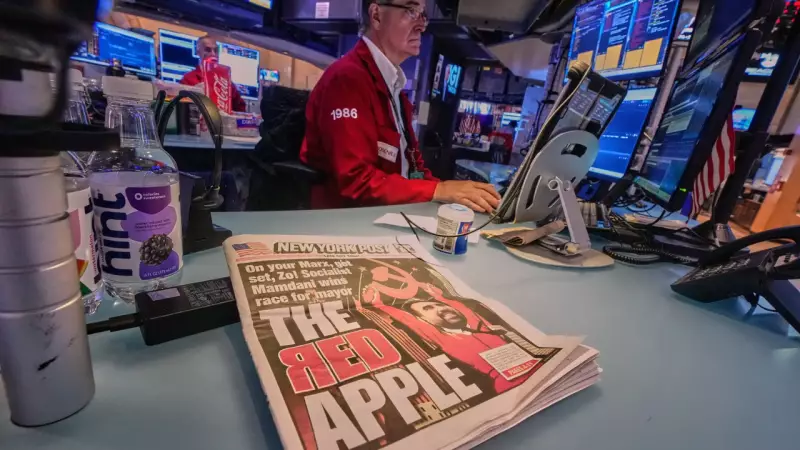
Wall Street demonstrated remarkable resilience on Friday, finding its footing after the release of unexpectedly strong employment figures that initially rattled investors. The market's steady performance suggests a growing confidence in the economy's underlying strength, even as it navigates the complexities of potential Federal Reserve policy shifts.
Jobs Data Delivers Positive Shock
The Labor Department's latest report revealed the US economy added a substantial 272,000 jobs in May, significantly surpassing economist expectations of 180,000. This robust employment growth initially sparked concerns about prolonged higher interest rates, but markets ultimately absorbed the news with surprising composure.
The unemployment rate edged up to 4%, marking the first time it has reached this threshold in over two years, yet wage growth accelerated at a faster pace than anticipated. This mixed economic picture presents both challenges and opportunities for investors navigating the current market landscape.
Nasdaq's AI Dilemma Intensifies
While broader markets stabilized, the Nasdaq Composite faced distinct pressure, particularly within the artificial intelligence sector that has driven much of its recent gains. Valuation concerns are mounting as investors question whether AI stocks have become overheated following their spectacular run.
Market analysts highlight that Nvidia, the chipmaker at the forefront of the AI revolution, experienced notable volatility despite its dominant position. The stock's performance has become a bellwether for the entire AI ecosystem, with its fluctuations sending ripples across technology portfolios worldwide.
Key Market Movements
- S&P 500 showed minimal change, reflecting market equilibrium
- Dow Jones Industrial Average gained 0.2%, demonstrating blue-chip stability
- Nasdaq Composite dipped 0.2%, highlighting sector-specific concerns
- Treasury yields climbed following the jobs report, affecting borrowing costs
Expert Perspectives on Market Direction
Financial strategists note that the market's ability to withstand strong economic data without significant declines indicates underlying strength. The "bad news is good news" narrative that previously dominated market psychology appears to be evolving as investors recognize the benefits of genuine economic health.
However, caution remains prevalent regarding technology valuations, particularly for companies whose stock prices have surged primarily on AI optimism rather than current financial performance. The coming weeks will be crucial in determining whether this represents a healthy consolidation or the beginning of a more significant correction.
What Investors Should Watch
- Upcoming inflation data and Federal Reserve commentary
- Corporate earnings revisions, especially for AI-focused companies
- Global economic indicators that could influence US market sentiment
- Sector rotation patterns as money moves between value and growth stocks
As markets navigate this complex environment, the balance between economic strength and valuation concerns will likely define investment returns through the remainder of 2024. The AI story remains compelling, but investors are increasingly discerning about which companies can translate artificial intelligence potential into tangible financial results.






